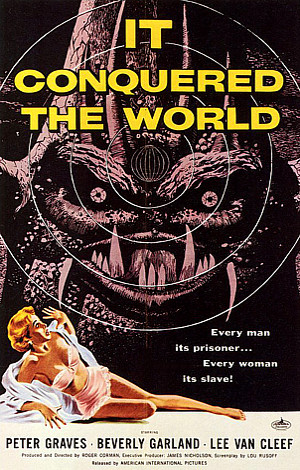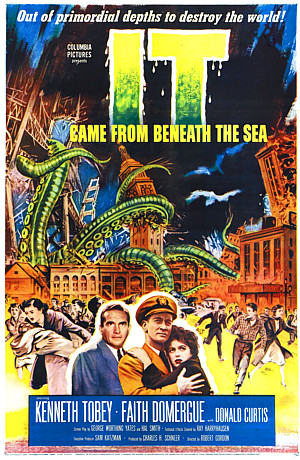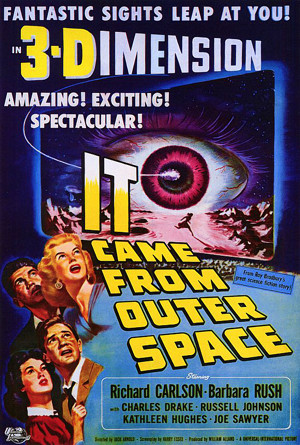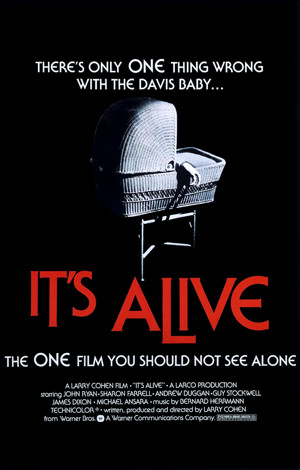 |
 |
Review by E.C.McMullen Jr. |
|

IT CONQUERED THE WORLD
|
|||
!!!SCIENCE MOMENT!!!:
It's not clear how a satellite specifically designed for orbiting the earth would have enough fuel to fly all the way to Venus, reconnoiter on the surface to pick up a passenger, return to space without the aid of a rocket booster that put it into space in the first place, and fly all the way back to earth -
- BUT -
since the earth scientists don't know either I'll chalk it up to unknown alien technology and leave it at that.
This Science Moment concerns itself with how the movie presents scientists.
While this is another cheap seat flick from Roger Corman's early years, and while Roger was young and so more concerned about preaching morality than adhering to science (or paying his crew, or writers, or...), the scene where Tom reveals his secret to Paul draws the stark contrast between the two men.
Tom busied himself acquiring as many Ph.Ds as he could in an effort to subdue people with his Appeal to Authority fallacies. None of his education was ever tested outside of the classroom and, in fact, Tom doesn't want to face the kind of scientific rigor that Paul wrestles with on a daily basis.
Tom has his Ph.Ds, now he wants everything in life given to him, because... because he wants it. He has papers from school showing he's smarter than you, and you have no right to stand in his way of ruling over you!
Too bad Tom didn't study for a Ph.D in emotional intelligence.
Tom sees the experienced, accomplished Paul with all of his discoveries, and the respect it brings him and wants that for himself, only without all the difficult struggle Paul goes through to earn those achievements. He's jealous of Paul, but also sees him as a like-minded friend, committed to thinking logically.
Except while Tom admires logical thinking he doesn't understand it and can't even fake it. He's unable to follow the scientific method of Asking Questions, Making Observations, and Following Logical Steps. To the contrary, Tom has a young child's sense of emotional maturity and pouts when he doesn't receive instant gratification the moment he wants it (that pursed lip thing he does).
I can read all of the science books I want, and I read plenty, but that only makes me a learned admirer, not an experienced scientist: All of my knowledge is gained second hand, discovered and verified by someone else. According to the scientific method as created, molded, and honed throughout the centuries, only someone who has tested their ideas under the rigors of scientific research and inquiry, failure or success, and successfully demonstrated and repeated those failures and successes* to others, and those who can repeat the work and get the same results, are real scientists.
![]()
END
This article copyright 2022 E.C.McMullen Jr.

|
| GET SOME CLOTHES ON | |
| YOU MIGHT ALSO LIKE THESE | |||
 |
 |
 |
|
| IT CAME FROM BENEATH THE SEA MOVIE REVIEW |
IT CAME FROM OUTER SPACE MOVIE REVIEW |
IT'S ALIVE MOVIE REVIEW |
|
| FEO AMANTE'S HORROR THRILLER Created by: E.C.McMullen Jr. FOLLOW ME @ |
| Amazon |
| ECMJr |
| Feo Blog |
| IMDb |
| Stage32 |
| Twitter X |
| YouTube |
| Zazzle Shop |

